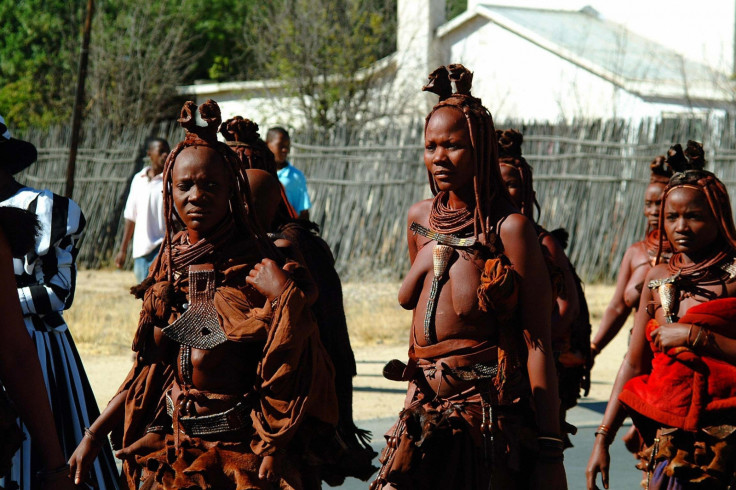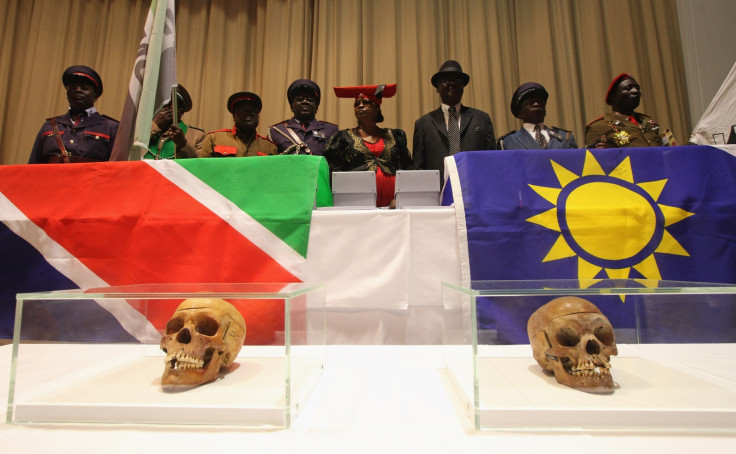Can Germany's talks over reparations for massacres in former colony Namibia pave the way for justice?
In the first genocide of the 20th century, Germany massacred tens of thousand of Herero and Namaqua tribesmen.

Germany looks set to discuss possible reparation payments over its bloody massacre in its former south-west African colony of what is now Namibia, raising hope for colonisation victims and their descendants.
Amid the 19th-century European scramble for Africa, Germany annexed territories in east and west Africa. Land was confiscated or acquired, with native inhabitants often subjected to racially-motivated violence and executions. In 1884, Namibia became a German colony under Otto von Bismarck.
Faced by an uprising by the rebellious Herero and Namaqua tribes in 1904 and 1905, in which more than a hundred Germans were killed, Germany massacred tens of thousands of men, women and children in what has become known as the first genocide of the 20th century.
Herero and Namaqua people were starved and their cattle poisoned. Food supplies were cut off and their waterholes were spiked with poison. Thousands were forced to flee to the Kalahari desert's sand dunes. General von Trotha issued an extermination order to shoot "any Herero, with or without a rifle, with or without cattle".
This order also applied to children and women – who were systematically raped or became white settlers' "wives". The colonisers passed restrictive laws relegating the Africans to second class citizenship in their own country.
An estimated 24,000 to 100,000 Herero and 10,000 Nama died at the hands of the Germans. Those who survived were sent to concentration camps, where they were subjected to physical violence and literally worked to death. By the end of the decade, three quarters of the Herero had been killed, according to historian Peter Fraenkel.
An official apology but still no compensation
Today, the Herero, who represent some 10% of Namibia's total population, are demanding reparations, as they say farmers descending from the German settlers still own land grabbed from their ancestors, fuelling tensions between communities.
German officials refused to describe the killings as "genocide" until July 2015, despite the United Nations' Whitaker Report defining Germany's will to exterminate the Herero and Namaqua as one of the earliest cases of genocide in the 20th century.
Indigenous Namibians living in the United States filed a lawsuit in 2001 demanding personal reparations from the German government and Deutsche Bank. Three years later Germany's minister for economic development and cooperation, Heidemarie Wieczorek-Zeul, officially apologised for the crimes during the 100th anniversary of the start of the genocide.
"We Germans accept our historical and moral responsibility and the guilt incurred by Germans at that time," she said, but ruled out Germany paying any compensation.

But the topic is back on the table, as a major new exhibition about the country's colonial history opens in Berlin, and German and Namibian governments have embarked on negotiations over possible reparation payments for victims' descendants in Namibia.
Talks are expected to be completed before June 2017, and while both parties could also agree on setting up a foundation for youth exchanges and funding several infrastructure projects, Herero and Namaqua have condemned their lack of participation.
Should Germany not agree to compensation, Herero chief Vekuii Rukoro said this would "constitute a phenomenal insult to the intelligence not only of Namibians and the descendants of the victim communities, but Africans in general, and in fact to humanity".
Will Germany set a precedent?
For more than a century, atrocities committed before or during European rule have been largely forgotten, but Germany's new policy could set a precedent for Belgium and the Democratic Republic of Congo, France and its former colony Algeria, or Great Britain and its former African territories.
In 2013, the UK, for instance, cautiously offered "sincere regret" to some 5,000 Kenyans jailed and tortured by British colonial forces during the UK's crushing of the Mau Mau uprising in its former colony. Thousands were killed during the revolt against British rule.
For the first time, the government agreed to issue £2,600 each to the abuse victims – though not to their descendants – with payouts totalling £20m.
"The British government recognises that Kenyans were subject to torture and other forms of ill-treatment at the hands of the colonial administration," Foreign Secretary William Hague said at the time. "The British government sincerely regrets that these abuses took place and that they marred Kenya's progress towards independence."
Belgium never officially recognised the mass murder of some 10 million people in its former colony of Congo under King Leopold II's rule. The plundering of the Belgian Congo – now known as the DRC – left roughly half the country's native population dead.
© Copyright IBTimes 2025. All rights reserved.






















